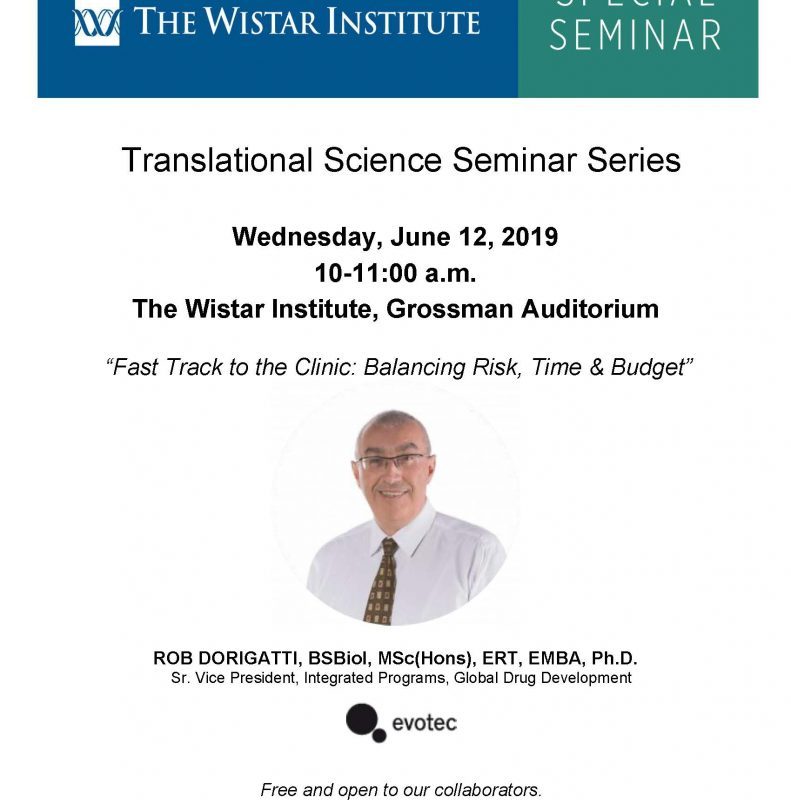“We didn’t talk about it at home, and I wasn’t learning about it in school” Great write-up in Penn Today of IRM’s Jamie Shuda, Marisa Bartolomei, and the excellent Penn Academy for Reproductive Sciences (PARS) and Penn Academy for Skin Health (PASH) outreach programs.
Dr. Chris Lengner, Associate Director of the IRM, has received a two year grant from the Shipley Foundation’s new Program for Innovation in Stem Cell Science. This is a major new award mechanism for stem cell-based research and we are very proud of Chris receiving this high honor!
On Wednesday, June 12th, the Wistar Institute will host Rob Dorigatti from Evotec as part of their Translational Science Seminar Series. Dr. Dorgotti will be presenting a seminar on requirements for advancing research discoveries through preclinical development and into the clinic. It should be a useful opportunity to learn more about early stage drug development.
For more information, visit wistar.org.
It’s been a busy and productive year for the IRM and its faculty members, including two dynamic and interdisciplinary symposia, an impressive roster of guest speakers, events that engage our students and trainees, and, of course, the research that our members conduct on a daily basis. Below are some of the outstanding highlights from the multiple papers published by our members recently:
We recently reported on a Cell paper published by Hongjun Song and Guo-Li Ming in the UPenn Perelman School of Medicine Department of Neuroscience, with others. Their labs made a discovery regarding the embryonic origin of adult neural stem cells in the mammalian hippocampus, which is integral to the generation of new neurons. Read more here: A common embryonic origin of stem cells drives developmental and adult neurogenesis
Andrew Vaughan, an Assistant Professor in the Department of Biomedical Sciences in the School of Veterinary Medicine, recently identified solitary chemosensory cells, AKA tuft cells, arising ectopically in the lung during regeneration after influenza infection. While not stem cells themselves, these cells have dramatic paracrine effects on differentiation and proliferation of adjacent epithelial progenitors cells. Read more here: Development of solitary chemosensory cells in the distal lung after severe influenza injury
Kenneth Margulies, Professor in the Perelman School of Medicine Department of Medicine, recently developed with colleagues soft elastomeric material with tunable stiffness that spans the range of tissue stiffness observed in normal and diseased heart tissue. They used this material to explore effects of extracellular matrix stiffness on the maturation, size, signaling and gene expression of iPSC-derived cardiomyocytes. The magnetically-tunable elastomer can also be incorporated into 3-dimensional microtissue constructs, making this biomaterial a potentially powerful and versatile tool for studying mechanobiology of stem cells and other cell types. Read more here: Tunable and reversible substrate stiffness reveals dynamic mechanosensitivity of cardiomyocytes

